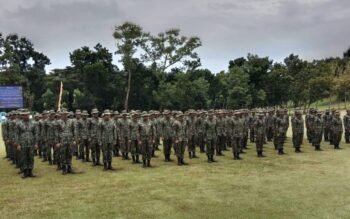DAVAO CITY (MindaNews / 4 Feb) – The Alliance of Concerned Teachers on Wednesday called a memorandum by the Department of Education requiring all teachers to take mandatory drug and neurological tests “degrading, insulting, and devoid of any legal basis.”
Speaking at Wednesday’s Club 888 media forum, ACT president Elenito Escalante said the practice was “illegal” and infringed on their human rights.
Escalante said they have already written the Civil Service Commission to clarify the issue.
An earlier CSC memo said that mandatory drug testing should only be given to employees as a pre-employment requirement.
Councilor Maria Belen Acosta, chair of the city council’s education committee who was also a guest at the press conference, said the committee is willing to assist in any way that they can.
Acosta requested the officials of the organization to furnish the committee a copy of the response by the CSC.
The Davao City division is the only one in the region that enforced the mandatory drug testing, according to ACT.
The memo asks teachers and non-teaching personnel from the division to submit to an annual physical examination starting Jan. 5 to May 15.
DepEd partnered with the City Health Office for medical exams, in absence of an item for a medical officer at the schools division through the department’s rationalization plan, which deemed the medical office redundant last year.
The medical exams consist of blood tests, fecalysis, urinalysis, chest x-ray, and sputum exam, aside from the drug and neuro-psychiatric test in the last 12 months.
The physical exams were scheduled through mobile clinics in the different districts and schools.
According to Acosta, this was the first time that she heard of employees being asked to take a mandatory drug testing.
She said that even police officials were being checked randomly for drugs, and not through a regular mandatory testing. CSC Memorandum Circular 13 Series of 2010 outlined the guidelines for drug-free workplaces.
Acosta said the ACT should wait for the response from the CSC before the council could intervene, if need be.
In case the council needed to be involved, Acosta said she would refer the teachers to the committee on human rights.
“We’re wondering if someone is earning money from this mandatory drug testing,” Escalante said. “There are 8,000 teachers in the division, and the amount for the testing if not covered by PhilHealth reaches up to P1,500.”
